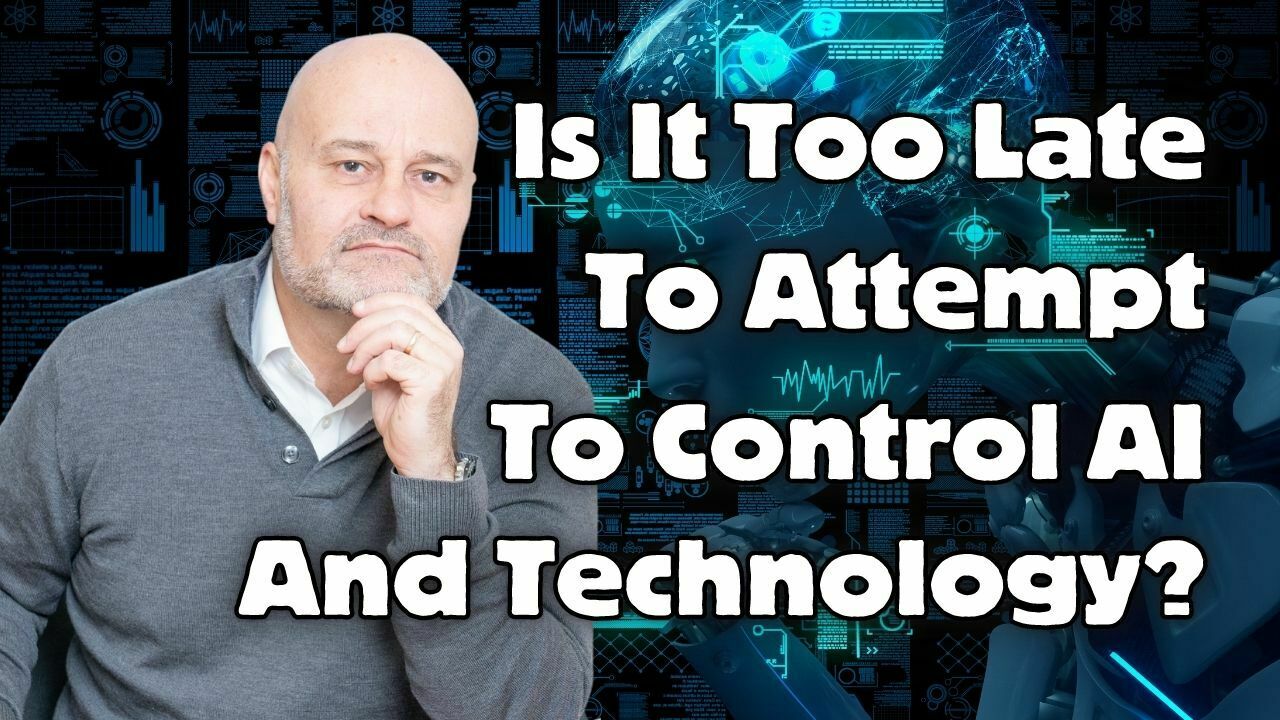EXELA is run by David Holland, a Gloucestershire-based digital marketing and IT specialist who helps businesses generate leads and sales smartly. Does he ask if it is possible to Control AI And Technology?
AI and new technology
We are currently facing a situation in which several nations are attempting to prohibit Tik Tok from users’ mobile devices, citing concerns regarding the security of data, and AI is now being questioned regarding its use in morally and ethically relevant contexts.

It also appears that governments are weighing the pros and cons of allowing AI services and apps to spread throughout their populations. Italy limited ChatGPT toward the finish of Spring and has said it will possibly permit it to work in the nation when the makers have consented to a rundown of requests around security.
In recent days, the winner of one of the Sony World Photography Awards 2023 refused to accept it because he claimed that he had created it using AI. Time will tell how that conversation will turn out. The photographer claimed that the image was meant to “provoke debate.”
There are also a lot of discussions and calls for regulation of AI-generated music.
Technological advances
The speed at which these advances are created and the effect of applications like TikTok and ChatGPT are exceeding the law all around the world with specialists racing to make up for the lost time.
We expect the UK government (and others) to prioritize personal and national security, but we also do not want excessive government intervention to restrict our freedom of choice. All of this creates a dilemma for the government.

BUY NOW ON AMAZON
Some apps may not be able to be installed on a device provided by an employer, particularly a government agency. However, this is not the same as banning the app or any other AI app or service nationwide.
Even though the Chinese government might screen exercises on TikTok, many individuals might in any case feel happy with utilizing it.
And how will such restrictions or bans affect business?
A ban imposed by the government can have a significant impact on a person’s business if they are a TikTok influencer or media buyer who has been making money from the platform for a few years. Is it right for the UK government, which is paid for by taxpayers, to compensate these individuals for their lost income?
Similar to TikTok, Italy is considering a ban on ChatGPT due to concerns about privacy law violations. Citizens must decide whether they place data privacy above the potential economic benefits of ChatGPT if this ban is implemented. As far as we know, there are no issues with national security here.
Indeed, even the TUC in the UK is approaching the public authority to make an early move around the utilization of artificial intelligence in business. The group is concerned that businesses might use it to make crucial decisions that affect the lives of workers, such as who should be hired and fired. Even though the government denies this, the atmosphere of fear surrounding AI is growing in strength.
Control AI And Technology
To safeguard jobs, should businesses be denied access to cutting-edge technologies? It presents a moral and ethical conundrum.
I believe that as a responsible measure, we ought to investigate whether the laws we currently have are sufficient to keep up with the rapid advancement of technology.
It begs the question of why the government doesn’t impose restrictions or bans until there is widespread use. In an ideal world, shouldn’t they have acted earlier and anticipated some of the consequences of this technology? Or is it preferable to wait for an incident and then attempt to “retrofit” the law by taking a “softly softly” approach?
The ultimate question is whether any technology, including Tik Tok and ChatGPT, will be banned or restricted in any way. These platforms’ users are tech-savvy and have been using virtual private networks (VPNs) for years to view content from outside their region or avoid paywalled service fees.
Therefore, it is unlikely that governments will be able to prevent people from accessing these apps if they are unable to protect these businesses’ interests and regulate access to their services in such situations.
In my view, if the ugly truth is as of now out in the open, it is difficult to get it back in – as entrepreneurs, we essentially need to construct our ethical compass around such innovation.
Find more now:
Related
Related posts
Categories
- Accident Lawyers (19)
- Adventure (1)
- Art (7)
- Author (24)
- Books (34)
- Business (32)
- Celebrity News (8)
- Debt (6)
- Design (3)
- Economy (11)
- Educational info (74)
- Events (11)
- Fashion (7)
- Filmmakers (8)
- Food (29)
- Gaming (10)
- Guide (7)
- Health & Beauty (43)
- Home (41)
- Insurance (8)
- Interior (1)
- Life (1)
- Lifestyle (5)
- Loans (11)
- Mortgage Loans (5)
- Motivation (4)
- Music (10)
- Parenting (1)
- People (3)
- Pets (5)
- Photography (4)
- Podcasts (5)
- Politics (2)
- Products (23)
- Relationships (3)
- Review (1)
- Scholarship (15)
- Student Loan (3)
- Style (1)
- Tax Lawyer (3)
- Tech (58)
- Travel (30)
- TV And Film (2)
- Uncategorised (8)
- Uncategorized (9)
Subscribe Now
* You will receive the latest news and updates on your favorite celebrities!





Social Media